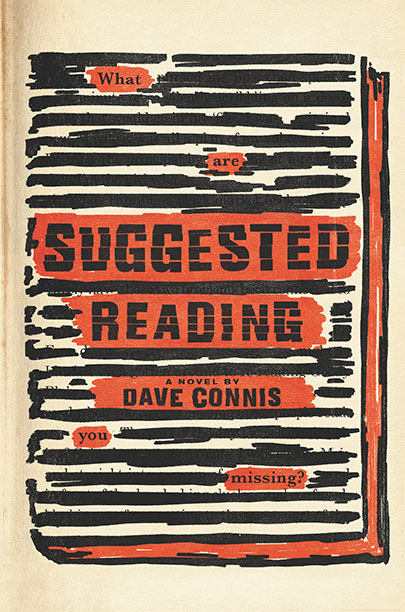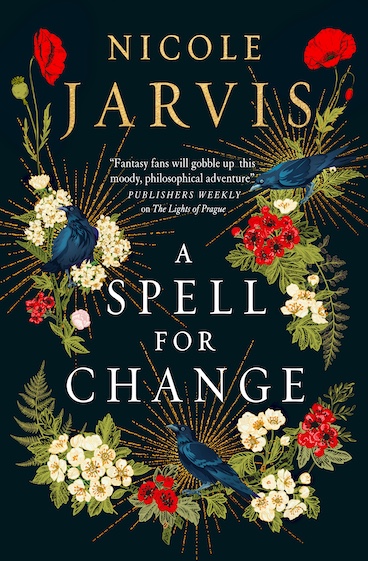Red, White, Blue, and Red
In A Good American Family, David Maraniss explores the Red Scare of the 1950s
“As a biographer and chronicler of American social history, I’ve spent my career trying to understand the forces that shape America,” writes David Maraniss at the outset of A Good American Family. “Before now, I had always done this by researching the lives of strangers until they became familiar to me. I would do that with some people again this time, but with a twist. One of the figures was intimately familiar to me at the start.” That figure is Maraniss’s own father, Elliot—journalist, editor, veteran, patriot, and communist.

On the very first page of A Good American Family, Maraniss depicts his father standing defiantly before Georgia Congressman John Stephens Wood and the House Committee on Un-American Activities. One senses that this story has been simmering in Maraniss’s mind for some time. The author offers no specific explanation for what finally led him—the winner of two Pulitzer Prizes for journalism and the author of numerous books of cultural history and biography, including Barack Obama, the definitive account of the 44th president’s unlikely and remarkable rise to power—to turn his lens toward his own remarkable and unlikely history. Regardless of the timing, Maraniss has produced a book which transforms personal history into a rich and penetrating exploration of the complexities of American life and culture that speaks to our time too.
“There were no witches in Salem in the seventeenth century,” Maraniss writes. “But there were communists in America in the twentieth century.” Two of them were his parents, and another was his uncle, who fought in the Lincoln Brigade in support of the Marxist Popular Front during the Spanish Civil War. Maraniss’s project in an A Good American Family is not to describe the paranoia and false accusations so common during the days of HUAC and the Red Scare but, rather, to examine through his own family what it actually meant to be an American communist in the 1950s.
 He explores both the naïve idealism that blinded his parents and uncle for too long to the cruelty and repression of Soviet Communism, particularly under Stalin, and the unimpeachable sense of justice that animated Elliott Maraniss and many other young Americans who sympathized with the underclass and the marginalized in American society and saw a need for radical reform.
He explores both the naïve idealism that blinded his parents and uncle for too long to the cruelty and repression of Soviet Communism, particularly under Stalin, and the unimpeachable sense of justice that animated Elliott Maraniss and many other young Americans who sympathized with the underclass and the marginalized in American society and saw a need for radical reform.
Maraniss goes deep into his father’s family history, tracing their roots from the Iberian Peninsula (the name “Marrano” was a Spanish pejorative for Jews who converted to Christianity to escape the Inquisition) to Eastern Ukraine and eventually to the United States after the pogroms reached Odessa. He traces his father’s education, through school and through his war experience as an Army lieutenant leading an all-black company when troops were still segregated, culminating in his decision to become a journalist and a communist. Working through the HUAC years and his father’s subsequent blacklisting, Maraniss delivers an indelible portrait of American life which breathes with a not-so-subtle undercurrent of deep emotion. Maraniss still writes with the pacing and fact-oriented style he’s developed in decades of experience as a crack reporter, but the journalist in Maraniss can’t smother the son, whose deep admiration for his father’s courage, complexity, and principle pulses on every page.
“Why it took my parents and uncle so long to reject the false promise of communism is a question my siblings and I have thought about but can only offer theories for, not certainties,” Maraniss writes. “My parents were not perfect, but they created a good American family. They emerged from hard times bonded by love and open to the world.” Maraniss may have only theories about the evolution of his parents’ political beliefs, but in A Good American Family, he makes a strong case for the necessity of thoughtfulness, careful reflection, and learning how to live at peace with the contradictions of this American life.

Ed Tarkington’s debut novel, Only Love Can Break Your Heart, was published by Algonquin Books in January 2016. He lives in Nashville.


